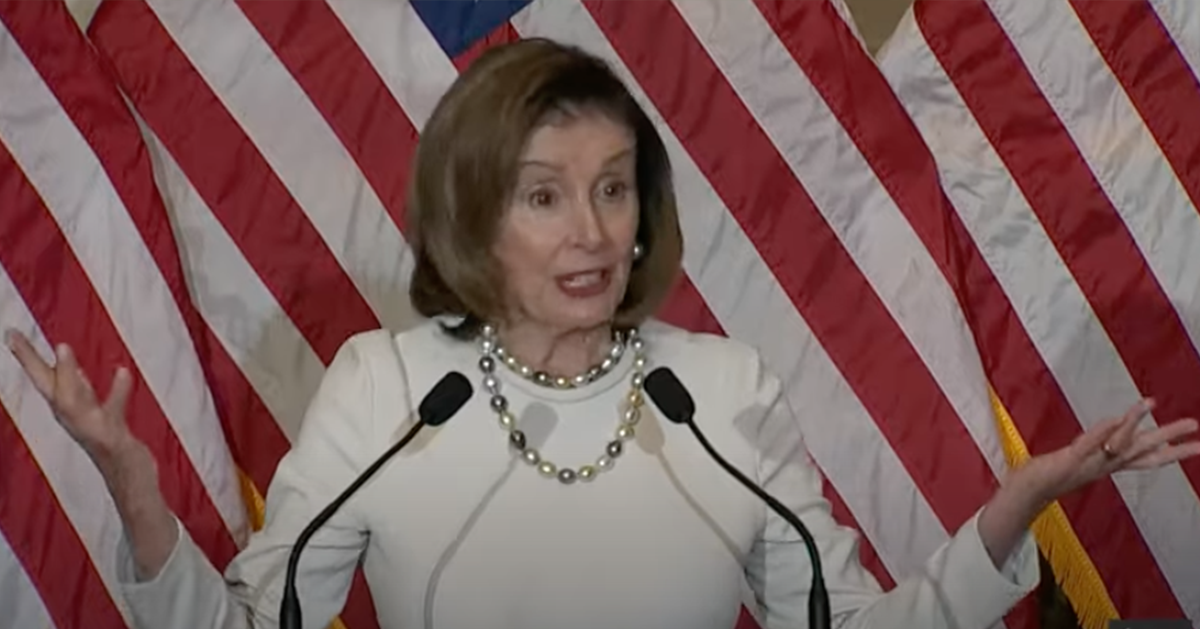Mitch McConnell Backs TikTok Prohibition Bill Over Propaganda Concerns
In an unprecedented move, Senate GOP leader Mitch McConnell (KY) has thrown his support behind a legislative proposal that could potentially outlaw TikTok, marking a significant turn in the ongoing debate over digital surveillance and international influence.
The endorsement underscores escalating concerns over foreign intervention via social media and the complexities surrounding the regulation of these platforms in the United States, as the Daily Mail reports.
McConnell's backing came to light following his first public remarks on the issue this Monday, where he openly supported the House's decision to potentially ban TikTok.
The move by the House, which saw the bill passing last month, aims to force ByteDance, the Chinese company behind TikTok, to sell off its U.S. operations or face a prohibition on operation in the U.S.
For weeks leading up to this announcement, McConnell's stance on the matter had been a topic of speculation, with many wondering where he would land on this contentious issue. His endorsement not only clarifies his position but also propels the debate into a new phase, emphasizing national security concerns over free speech arguments.
McConnell Critiques TikTok's Chinese Influence
In his critique, McConnell lambasted TikTok as a tool of influence for the People's Republic of China (PRC), portraying the platform as deeply intertwined with the country's government.
He described it as "a platform that is beholden to our foremost strategic competitor" and condemned it for acting as a "tool of surveillance and propaganda." The Senate leader's comments highlight the deep-seated fears regarding China's potential to leverage TikTok for its geopolitical gains.
Arguing for the necessity of the bill, McConnell pointed out that forcing ByteDance to divest from TikTok would be in line with constitutional practices, addressing a significant risk to both America's youth and the country's future competitiveness. His remarks not only underscore the national security implications but also challenge the counterarguments centered on free speech.
The discussion around the bill is not limited to McConnell's support. Senate Majority Leader Chuck Schumer has also weighed in, albeit without a firm commitment to bring the bill to the Senate floor. However, he acknowledged the importance of addressing the TikTok issue, promising to seek a path forward for legislation concerning the app.
Legislative Path and Public Debate
The House's vote on March 13 to potentially ban TikTok resulted in a decisive 352-65, setting a six-month deadline for ByteDance to divest from the app. This legislative step has opened up a broad dialogue concerning the balance between national security and free speech, with significant figures and organizations voicing their stances.
While some view the bill as a necessary step to safeguard American data from foreign adversaries, others, including First Amendment advocates, fear it could set a dangerous precedent for government intervention in social media. McConnell has rebutted these concerns by distinguishing the debate from one about content censorship to one focused on conduct, particularly the conduct endorsed or facilitated by the PRC.
TikTok's response has been to mobilize its user base, initiating a campaign to oppose the bill. This move generated an extensive backlash against the proposed legislation, flooding congressional offices with protests and highlighting the platform's significant influence and reach.
Expanding Presidential Powers and Opposition Voices
The bill not only targets ByteDance and TikTok but also seeks to broaden the president's authority to restrict access to applications controlled by foreign adversaries, including nations like China, Russia, North Korea, and Iran. This expansion of powers is part of a broader effort to address cybersecurity and information warfare challenges posed by these countries.
However, the bill's critics include high-profile figures such as former President Donald Trump and entrepreneur Elon Musk, who have articulated their concerns over its implications for free speech and competition. Trump specifically fears the bill might disproportionately benefit platforms like Facebook, while Musk has decried it as an overreach of government censorship.
Additionally, political figures across the spectrum, from Rep. Marjorie Taylor Greene (R-GA) to members of the 'Squad' within the Democratic Party, have expressed reservations. Their concerns revolve around the potential for the bill to pave the way for future governmental overreach in the tech and social media sectors.
Looking Ahead: A Complex Legislative Journey
As the debate over TikTok's future in the U.S. continues, the bill's path through the Senate remains uncertain.
With key figures like Senate Commerce Committee Chair Maria Cantwell (D-WA) calling for further public hearings, the discussion is set to deepen, potentially addressing the multifaceted implications of such a ban.





